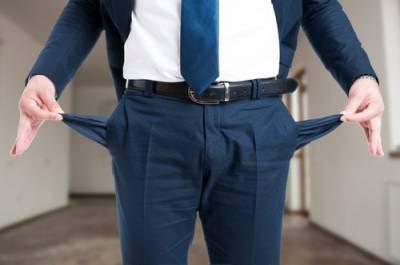 312-704-0771
312-704-0771
What Property is Exempt From Illinois Bankruptcy Proceedings?
 For many people who are struggling with overwhelming debt, one of the things that holds them back from filing for bankruptcy is the myth that they will lose everything that they own as a result. While it is true that there may be some assets that must be given up during the bankruptcy process, many of these assets are considered exempt property, or property that is not able to be included in the bankruptcy estate. As a creditor, you should know which property is and is not able to be used to repay debts.
For many people who are struggling with overwhelming debt, one of the things that holds them back from filing for bankruptcy is the myth that they will lose everything that they own as a result. While it is true that there may be some assets that must be given up during the bankruptcy process, many of these assets are considered exempt property, or property that is not able to be included in the bankruptcy estate. As a creditor, you should know which property is and is not able to be used to repay debts.
Illinois Property Exemption
When a person files for bankruptcy, they will be assigned a bankruptcy trustee who is responsible for gathering, overseeing, distributing, and/or protecting the debtor’s property that is contained in the bankruptcy estate. The bankruptcy estate contains nearly everything that the debtor owns and is used to pay back creditors in some situations. However, certain property is excluded from being used to repay creditors. This is called exempt property and varies from state to state, in addition to federal exemptions.
In Illinois, however, residents are only able to use the state’s set of exemptions, instead of being able to choose between the state’s and federal exemptions. When looking at a debtor’s bankruptcy estate, some of the applicable exclusions may include:
-
Homestead - Illinois law breaks the exemptions for the homestead down according to population. If the county in which a debtor files for bankruptcy has a population of more than three million people, they can claim up to $10,000 in exempt value. In all other counties, the homestead exemption is valued at $6,000.
-
Personal property - A variety of personal property can be exempt from being used as debt repayment. Most of the personal property that is exempt from the bankruptcy estate is property that is deemed to be essential. These items include clothing, books, school supplies and photographs. The debtor can also exclude up to $2,400 in value in a motor vehicle and up to $1,500 in “tools of the trade” or anything the debtor needs to perform his or her job.
-
Public benefits - Benefits that are paid to a debtor because they are blind, disabled, a veteran, elderly, or otherwise are also exempt from bankruptcy proceedings. This also includes any assistance benefits a person may be receiving, such as food stamps or income assistance, as well as any workers’ compensation payments.
-
Wildcard exemption - Any other personal property of your choosing can be exempted, as well, under the wildcard exemption. The only requirement is that you can only exempt up to $4,000 for the wildcard exemption.
Our Chicago Bankruptcy Attorney is Here to Help
Many times, when a creditor receives notice that his or her debtor is filing for bankruptcy, they just give up and do not make any further attempts to collect that debt. However, some creditors can be successful in recovering debt that has yet to be repaid from bankruptcy estates. At Dimand Walinski Law Offices, P.C., we have represented numerous creditors during many types of bankruptcy proceedings. To schedule a consultation to discuss how we can help your company, call our team of Chicago, IL creditors’ rights lawyers today at 312-704-0771.
Sources:
https://upsolve.org/learn/il-exemptions/
https://www.ilga.gov/legislation/ilcs/fulltext.asp?DocName=073500050K12-1001
https://www.ilga.gov/legislation/ilcs/fulltext.asp?DocName=003502000K15-175






